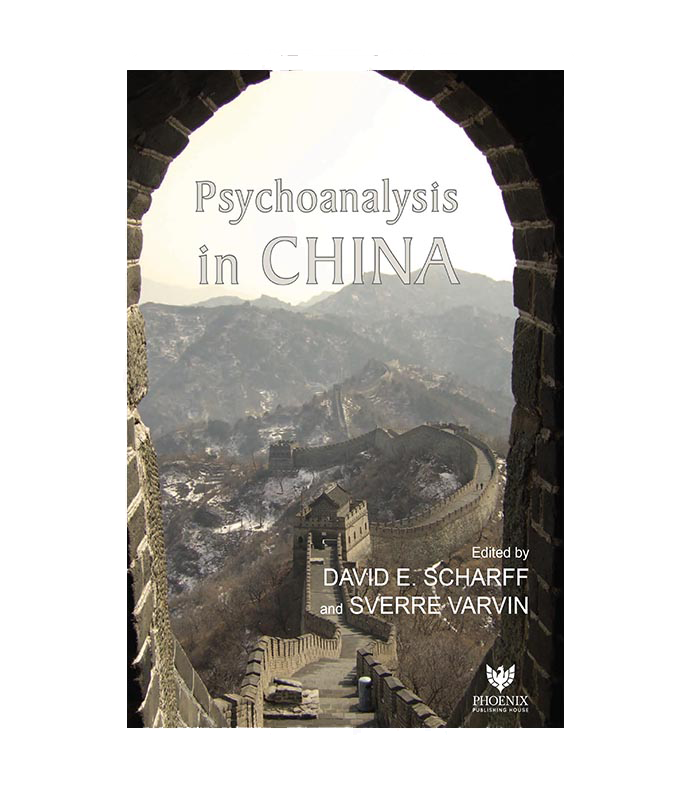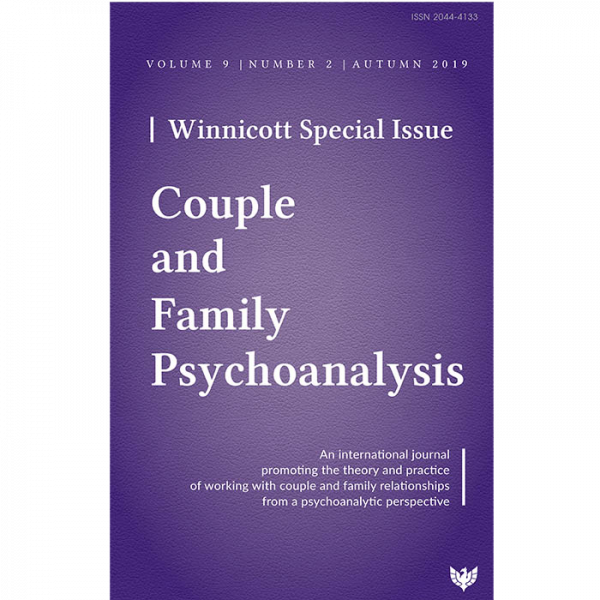ACKNOWLEDGEMENTS
ABOUT THE EDITORS AND CONTRIBUTORS
INTRODUCTION
David E. Scharff and Sverre Varvin
PART I: CHINESE CULTURE AND HISTORY RELEVANT TO MENTAL HEALTH
CHAPTER ONE
Idealising individual choice: work, love, and family in the eyes of young, rural Chinese
Mette Halskov Hansen and Cuiming Pang
CHAPTER TWO
Psychoanalytically oriented psychotherapy and the Chinese self
Antje Haag
CHAPTER THREE
China—a traumatised country? The aftermath of the Chinese Cultural Revolution (1966–1976) for the individual and for society
Tomas Plänkers
CHAPTER FOUR
The religious context of China’s psycho-boom
Hsuan-Ying Huang
CHAPTER FIVE
The encounter of psychoanalysis and Chinese culture
Lin Tao
CHAPTER SIX
Yin yang philosophy and Chinese mental health
Li Ming
CHAPTER SEVEN
Psychoanalysis meets China: transformative dialogue or monologue of the western voice?
José Saporta
DISCUSSION OF CHAPTER SEVEN
Sverre Varvin
CHAPTER EIGHT
The shibboleth of cross-cultural issues in psychoanalytic treatment
Elise Snyder
CHAPTER NINE
Collective castration anxieties: an ethnopsychoanalytic perspective on relations between the sexes in China
Alf Gerlach
CHAPTER TEN
Five things western therapists need to know for working with Chinese therapists and patients
David E. Scharff
PART II: THE DEVELOPMENT OF PSYCHOANALYSIS AND PSYCHOTHERAPY IN CHINA
CHAPTER ELEVEN
West–East differences in habits and ways of thinking: the influence on understanding and teaching psychoanalytic therapy
Sverre Varvin and Bent Rosenbaum
CHAPTER TWELVE
The impact of psychic trauma on individuation and self-identity: how the psychic trauma of poverty affects individuation and self-identity in the context of the Chinese family
Yang Yunping
CHAPTER THIRTEEN
Working with Chinese patients: Are there conflicts between Chinese culture and psychoanalysis?
Zhong Jie
CHAPTER FOURTEEN
The development of psychoanalysis in China
Shi Qijia
CHAPTER FIFTEEN
Transference and countertransference in a Chinese setting: reflections on a psychotherapeutic process
Wang Zhiyan and Anders Zachrisson
CHAPTER SIXTEEN
Sleeping Beauty’s dream: when a myth from the East meets a tale from the West, a new story is born on the TV screen, one that can be understood psychoanalytically
Irmgard Dettbarn
DISCUSSION OF CHAPTER SIXTEEN
Rainer Rehberger and Sverre Varvin
PART III: DEVELOPING TRAINING IN CHINA
CHAPTER SEVENTEEN
The development of psychodynamic psychotherapy and psychoanalysis in China
Sverre Varvin and Alf Gerlach
CHAPTER EIGHTEEN
The development of psychoanalytic psychotherapy at Shanghai Mental Health Centre
Xu Yong, Qiu Jianyin, Chen Jue, and Xiao Zeping
CHAPTER NINETEEN
Introducing psychoanalytic therapy into China: the CAPA experience
Ralph E. Fishkin and Lana P. Fishkin
CHAPTER TWENTY
German psychoanalysts in China and the start of group therapy work
Alf Gerlach
CHAPTER TWENTY-ONE
Research on the development of Chinese psychoanalysts and psychotherapists
Li Yawen
CHAPTER TWENTY-TWO
Dynamic psychotherapy: a model for teaching and supervision in China
Siri Erika Gullestad
CHAPTER TWENTY-THREE
Learning, translating, and practising analytic psychotherapy in China
Gao Jun
CHAPTER TWENTY-FOUR
Learning analytic psychotherapy as a student and psychiatric resident in Shanghai
Qi Wei
CHAPTER TWENTY-FIVE
Assessment and early treatment in psychoanalysis in China
Liu Yiling
CHAPTER TWENTY-SIX
Navigating the uncharted psychoanalytic seascape between East and West: a pilot project with Hainan Anning Hospital that cultivated mutual learning
Caroline Sehon
PART IV: MARRIAGE AND MARITAL THERAPY IN CHINA AND TAIWAN
CHAPTER TWENTY-SEVEN
The impact of Chinese cultures on a marital relationship
Jill Savege Scharff and David E. Scharff
CHAPTER TWENTY-EIGHT
Cultural factors and projective identification in understanding a Chinese couple
Shi Qijia and David E. Scharff
CHAPTER TWENTY-NINE
The intergenerational and cultural transmission of trauma in Chinese couples: treatment considerations
Janine Wanlass
CHAPTER THIRTY
Conflict between extended families and couple identity in Taiwan—a psychoanalytic exploration
Hui-Wen Teng
EPILOGUE
David E. Scharff and Sverre Varvin
INDEX
Look inside!





 David E. Scharff, MD, editor-in-chief, Psychoanalysis and Psychotherapy in China; co-founder, former Director, and Chair of the Board, The International Psychotherapy Institute; Chair, the International Psychoanalytical Association’s Committee on Family and Couple Psychoanalysis; Director, Continuous Training Program in Couple and Family Psychoanalytic Therapy, Beijing; author and editor of more than 30 books, including Psychoanalysis in China (with Sverre Varvin); Psychoanalytic Couple Therapy (with Jill Scharff); Enrique Pichon-Riviere: Pioneer of the Link (with Roberto Losso and Lea Setton); and Family and Couple Psychoanalysis: A Global Perspective (with Elizabeth Palacios).
David E. Scharff, MD, editor-in-chief, Psychoanalysis and Psychotherapy in China; co-founder, former Director, and Chair of the Board, The International Psychotherapy Institute; Chair, the International Psychoanalytical Association’s Committee on Family and Couple Psychoanalysis; Director, Continuous Training Program in Couple and Family Psychoanalytic Therapy, Beijing; author and editor of more than 30 books, including Psychoanalysis in China (with Sverre Varvin); Psychoanalytic Couple Therapy (with Jill Scharff); Enrique Pichon-Riviere: Pioneer of the Link (with Roberto Losso and Lea Setton); and Family and Couple Psychoanalysis: A Global Perspective (with Elizabeth Palacios). Sverre Varvin, MD, DPhil. Training and supervising analyst, Norwegian Psychoanalytic Society. Professor, Oslo and Akershus University College of Applied Sciences (OAUC), Faculty of Health Sciences, Department of Nursing, University of Oslo. Research areas: trauma and treatment of traumatised patients, treatment process, traumatic dreams, and psychoanalytic training. Chair, IPA China Committee. Has worked for more than twelve years in China with psychotherapy and psychoanalytic training programmes.
Sverre Varvin, MD, DPhil. Training and supervising analyst, Norwegian Psychoanalytic Society. Professor, Oslo and Akershus University College of Applied Sciences (OAUC), Faculty of Health Sciences, Department of Nursing, University of Oslo. Research areas: trauma and treatment of traumatised patients, treatment process, traumatic dreams, and psychoanalytic training. Chair, IPA China Committee. Has worked for more than twelve years in China with psychotherapy and psychoanalytic training programmes.
Christopher Bollas, author of ‘China on the Mind’ and ‘Catch Them Before They Fall: The Psychoanalysis of Breakdown’ –
‘It is a challenge to describe how remarkable this book is. In the first place it provides a near comprehensive and inclusive review of psychoanalysis in contemporary China. Although many authors focus on particular issues, the sum of individual interests comprises a fascinating collective voice that reflects modern China. Unlike so many works by oriental and occidental writers interested in psychoanalysis, this new work does not promote an occidental agenda. The editors are to be congratulated for their remarkable skill in facilitating chapters that integrate oriental and occidental thinking. In that respect, this is a book that should become required reading for psychoanalysts in the East and the West for generations to come.’
Stefano Bolognini, President, International Psychoanalytical Association –
‘This fascinating book presents the most complete, enlightening, and up-to-date contribution on the new bridge between psychoanalysis and contemporary Chinese culture. Highly qualified and actively involved specialists, from both western countries and China, explore the complexity and richness of this growing, exciting exchange, which is now possible thanks to the significant shift in Chinese attitudes towards subjectivity. While reading these pages, it is easy to deduce that this will not be a simple one-way intercultural process: we can envisage for the future a mutual cross-fertilisation between the most revolutionary western discoveries about the human mind and the immense, millenary depth of Chinese tradition and philosophy.’
Jia Xiaoming, Professor, School of Humanities and Social Sciences, Beijing Institute of Technology, and Vice- Director, Psychoanalytic Committee of the China Association for Mental Health –
‘This book thoroughly demonstrates the latest developments of psychoanalysis in China. All of the foreign and Chinese contributors to the book are psychoanalysts and psychotherapists actively involved in the training, learning, and practice of psychoanalysis in China. They share and demonstrate their enthusiasm, experience, and thinking from various perspectives. The most commendable part of the book is the cultural perspective; and the contributions of psychoanalysis concerning the nature of human beings, mental health, and psychotherapy are formidable. However, with thousands of years of civilisation, the complexity of Chinese culture has a lot of special features. The practice of psychoanalysis in China presents a great collision between western and eastern cultures, and the experience and thinking of the authors offer important starting points for the development of useful theory, methods, and techniques for the development of mental health within the context of Chinese culture. Perhaps it will be most valuable in promoting the penetration of psychoanalysis into China, but China will also contribute new power to psychoanalysis around the world. This book is especially important because it witnesses this mutual process.’
Kris Yi PHD PsyD, ‘Psychoanalytic Psychology’, 2017, (34)(2):242-245 –
‘The edited volume by David Scharff and Sverre Varvin is a wonderful new addition on the topic. Spanning some 30 short chapters, the book provides snap shots of the cultural, theoretical, and practical issues associated with introduction of psychoanalysis in China from the vantage points of both Western and Chinese participants.’